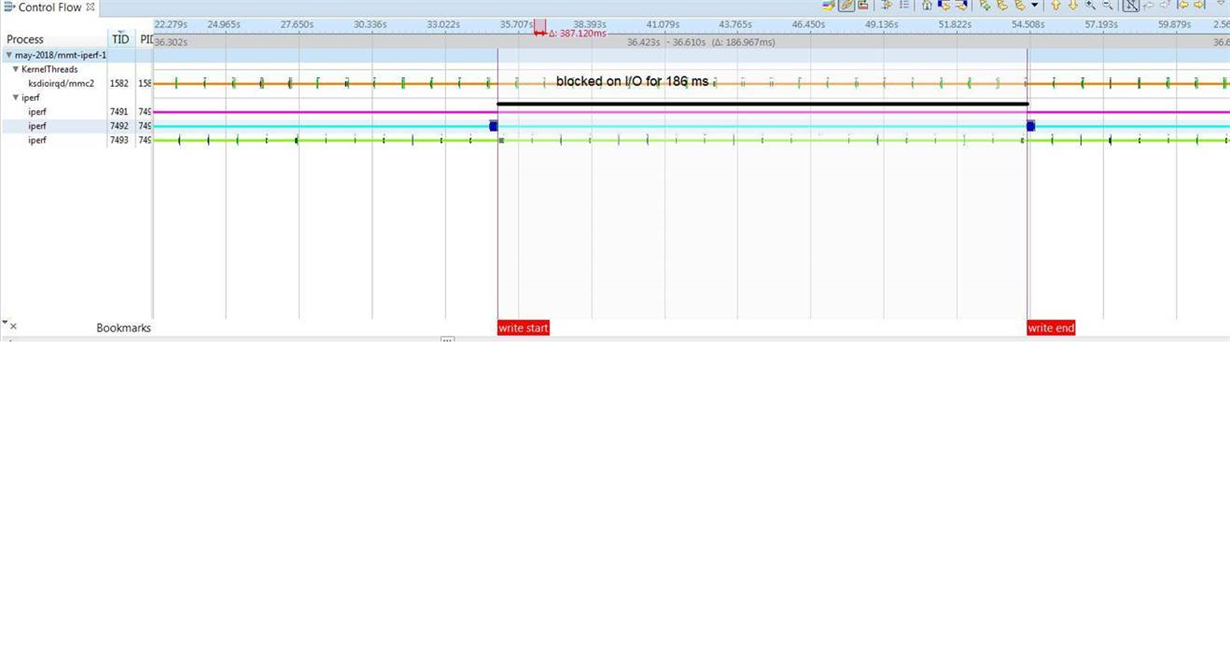Part Number: DRA74
Tool/software: Linux
Hi,
Kernel Version : 4.4.84
We have Marvel wifi Chip its connected to MMC3 controller via sdio interface.
And Our observation is:
mmc sdio driver uses the polling mode instead of irq mode.
As sdio irq thead(ksdioirqd) polls to process the pending interrupts from mmc3 node, which may take time to process the interrupts
Due to which we are getting very less throughput when we run iperf(around 15Mbps)
Could any body please tell me how to configure/enable sdio interrupt mode in mmc3 driver instead of default polling method.


